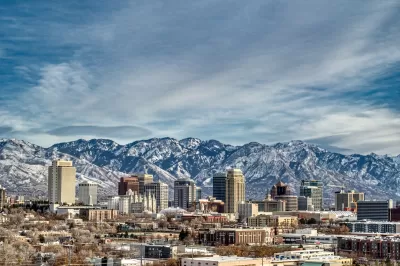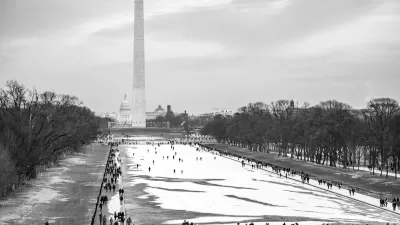The state’s attempt to decentralize emergency homeless shelters yielded poor results, leading to a decision to develop a “transformative” intake campus with wraparound services.

The Utah Homeless Services Board plans to build a new “transformative, centralized” shelter for unhoused residents, acknowledging that a prior plan to redistribute shelter beds across three facilities led to high costs and a shortage of available beds.
As Katie McKellar explains in Utah News Dispatch, “In 2019, the Road Home’s old downtown homeless shelter that some nights sheltered more than 1,000 people shut down after years of heartburn over its impact to the Rio Grande area and painstaking political wrangling to site three new homeless resource centers meant to replace it with a “scattered sites” model, meant to break up populations into smaller facilities.”
Now, the state wants to take a “more holistic and permanent approach” to reducing homelessness and providing services. The Board directed the Office of Homeless Services to identify three potential sites appropriate for a 30-acre campus and submit a master plan including “programmatic and structural schematics, costs, best practices from other similar institutions, and definitions of the success outcomes that will be measured and evaluated” by January 15, 2025.
The Board called for the campus to be built by October 1, 2025 with beds that are “low barrier” and easily accessible year-round. While details on the campus are still fuzzy, state homeless coordinator Wayne Niederhauser says it will include case management, healthcare, and other wraparound services, serving as an intake hub.
FULL STORY: Utah homeless board OKs search for up to 1,200-bed ‘centralized campus.’ What now?

Alabama: Trump Terminates Settlements for Black Communities Harmed By Raw Sewage
Trump deemed the landmark civil rights agreement “illegal DEI and environmental justice policy.”

Study: Maui’s Plan to Convert Vacation Rentals to Long-Term Housing Could Cause Nearly $1 Billion Economic Loss
The plan would reduce visitor accommodation by 25% resulting in 1,900 jobs lost.

Planetizen Federal Action Tracker
A weekly monitor of how Trump’s orders and actions are impacting planners and planning in America.

Wind Energy on the Rise Despite Federal Policy Reversal
The Trump administration is revoking federal support for renewable energy, but demand for new projects continues unabated.

Passengers Flock to Caltrain After Electrification
The new electric trains are running faster and more reliably, leading to strong ridership growth on the Bay Area rail system.

Texas Churches Rally Behind ‘Yes in God’s Back Yard’ Legislation
Religious leaders want the state to reduce zoning regulations to streamline leasing church-owned land to housing developers.
Urban Design for Planners 1: Software Tools
This six-course series explores essential urban design concepts using open source software and equips planners with the tools they need to participate fully in the urban design process.
Planning for Universal Design
Learn the tools for implementing Universal Design in planning regulations.
Caltrans
Smith Gee Studio
Institute for Housing and Urban Development Studies (IHS)
City of Grandview
Harvard GSD Executive Education
Toledo-Lucas County Plan Commissions
Salt Lake City
NYU Wagner Graduate School of Public Service





























